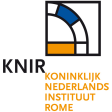About Fasti Survey
Background
After Fasti Online Excavation (2003) and Fasti Archaeological Conservation (2015), the International Association for Classical Archaeology (AIAC) in collaboration with the Royal Netherlands Institute in Rome has created an online database for archaeological field surveys.
The project was started with the generous sharing of data by the MAGIS project. MAGIS was born in 2002, with a major grant from the Mellon Foundation and support from DePauw University, as an on-line inventory of regional archaeological survey projects in the greater Mediterranean. During the previous generation, scholars had accumulated large amounts of computerized data that remained trapped in localized, proprietary, or even obsolete databases. Few efforts had been made to facilitate ways in which such data might be brought together and shared between researchers, with students, and with the general public. MAGIS set out to change that situation. The open exchange of geographic and archaeological information is necessary for archaeologists, anthropologists or historians to study regional or Mediterranean-wide patterns and draw historical conclusions that are broader than their own study areas. MAGIS was the first attempt to allow archaeologists, historians and other scholars of the ancient Mediterranean to search or browse for surveys, access detailed information and bibliography about them, and map their distribution. MAGIS contains survey metadata (information about the projects), not actual survey data. The project principal investigators were Rebecca K. Schindler and Pedar W. Foss of DePauw University, with the cooperation of Michael Galaty, then of Millsaps College, P. Nick Kardulias of the College of Wooster, Kenneth S. Morrell of Rhodes College, and many students from all of these institutions.
Objective
Like MAGIS, Fasti Survey is an online Geopraphic Information System that provides an overview of archaeological field survey projects conducted in the Mediterranean region. As such it offers a digital and easily accessible platform that can be used by academics as well as policy makers that are interested to know where archaeological field explorations have been conducted, how the research was done and by whom. At the same time the project offers researchers the possibility of uploading their primary data and to publish results in an on-line peer reviewed academic journal.
Since the Fasti Survey Project focuses on field explorations, a requirement for publication on this website is that the project has a clear focus on recording archaeological surface distributions, typically resulting in maps showing the absence or presence of archaeological remains in the landscape, as well as their characterization. This encompasses various approaches varying from extensive site orientated field surveys to full coverage off-site surveys. However, the Fasti Survey Projects is not the place for registering projects focused at mapping known archaeological monuments without recording surface distributions.
Crowd-sourced citable data collection
The project depends entirely on the readiness of the scientific community of survey archaeologist to publish their project information and field survey data on an open access online platform.
It is also possible to publish project information and results, using four different but interlinked formats:
Fasti survey record:For every survey project basic information about applied survey methodology, research interest, project team, and bibliography is recorded in a user-friendly database (detailed information on the various database entries here). This general project information is linked to a spatial unit that defines the location and size of the research area.
Shape-file upload: The Fasti Survey site also offers field survey projects the possibility of uploading detailed spatial data, principally the definition of the research area, but also more detailed spatial information such as the fields and/or units that actually have been investigated.
Data-sheet upload:Each survey may also upload the original data of the survey project as a database file, thus unlocking this crucial primary data for the entire academic community. Since the datasheet is connected to a citable Fasti- record (and possibly also a Fasti Folder publication), scholars using the online primary data will have to refer to the relevant survey record or Folder publication and as such scholars uploading their data receive the credits for their work.
FOLD&R Survey:is an on-line open access peer refereed journal on field survey archaeology. It offers archaeologist the possibility to describe their methodological strategies and survey results in more detail.
Crowd-sourced data synchronization
The Fasti Survey project does not require survey projects to publish their data-sheets using standardized data entries. In the past many ‘top-down’ attempts to arrive at a universal format to describe survey-data have run into numerous problems as different, and continuously changing, academic traditions and/or research objectives cannot be easily accommodated into a single framework. Instead, the Fasti survey database allows research projects to upload the data as they have recorded it themselves. Nevertheless, we aim to eventually arrive at integrated data-sets, through a process of crowd-soured data synchronization. Scholars are encouraged to reuse and synchronize different published data-sheets according to their own research interests. The reworked datasheet can be uploaded onto the Fasti-website. Scholars using the reworked datasheets are asked to cite both the original survey project that collected the data, as well as the researches that revised the data according to certain specific and well-described criteria.
Partner Institutions and Researches Partners
The Fasti Survey project is supported by the Royal Netherlands Institute in Rome. FASTI Survey is eager to welcome and support the entry of new partners into the project. For information on how to join FASTI Survey contact Tesse Stek t.d.stek@knir.it
Project Managers: Tesse D. Stek, Jitte Waagen, Anita Casarotto (Italy), Jesús García Sánchez (Iberia)
Scientific Committee: Peter Attema, Paolo Carafa, Peter van Dommelen, Elizabeth Fentress, Stefania Gigli, Maria Luisa Marchi, Frank Vermeulen, and Robert Witcher.
Software and technical support: L - P : Archaeology


